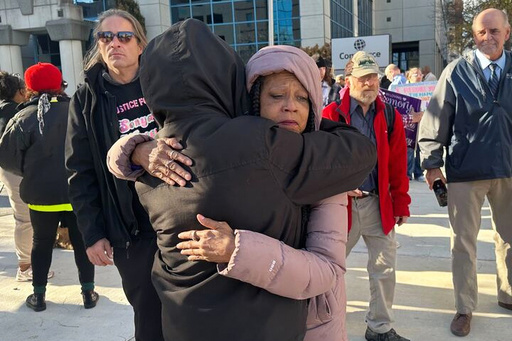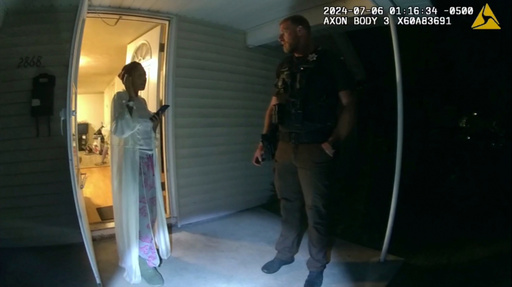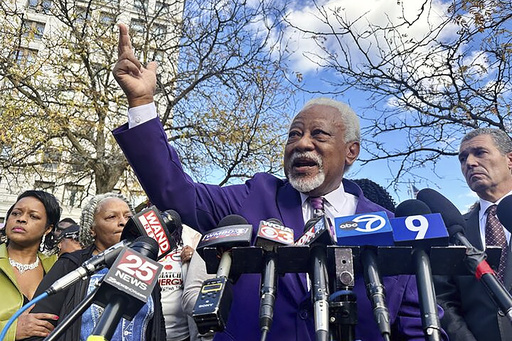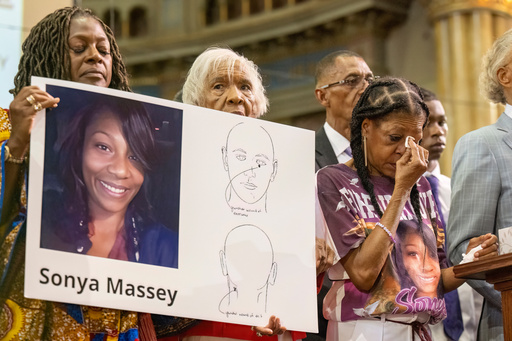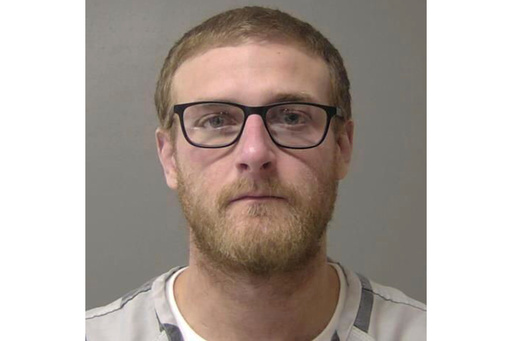Cop's testimony, judge's instructions influenced outcome of Sonya Massey murder case
News > National News

Audio By Carbonatix
12:04 PM on Thursday, October 30
By JOHN O'CONNOR and ED WHITE
SPRINGFIELD, Ill. (AP) — The killing of Sonya Massey in her home by an Illinois sheriff's deputy was pursued by prosecutors as a first-degree murder case with a possible life prison sentence. Then the judge gave the jury another option when deliberations began this week.
Sean Grayson was found guilty Wednesday of second-degree murder, a lesser charge with less severe consequences. Massey's family was outraged by the verdict. The Black woman's supporters called it the wrong dose of justice, noting she was deliberately shot in the face by a white police officer in her own kitchen.
Experts say a verdict form with different options is common in Illinois courts and elsewhere — if a judge believes the evidence presented at trial could plausibly justify it. Grayson testified in his own behalf, claiming he felt threatened by Massey and her pot of hot water.
“This is not unusual,” Andrew Leipold, who teaches criminal law at University of Illinois College of Law, said of the jury's alternatives.
Under Illinois law, “second-degree murder recognizes the possibility that people honestly — but unreasonably — believe they're in danger so they killed the person they're worried about,” Leipold said.
No jurors talked to reporters about how they reached consensus on the conviction. But they were likely influenced by Grayson's version of what happened when he and another officer went to Massey's home in Springfield early on July 6, 2024.
Massey had called 911 in the state's capital city, seeking help for a suspected prowler. Grayson, a Sangamon County sheriff's deputy, arrived with another officer, and their encounter with Massey began to center on a boiling pot of water.
Grayson said Massey, who had struggled with mental health, grabbed the pot after he had ordered the other officer to move it off the stove. “I rebuke you in the name of Jesus,” she said, according to body camera video.
Grayson testified that he feared being struck with the pot and the water. He had told investigators that he believed the “rebuke” meant Massey intended to kill him. He fired three shots, striking her just below the eye and killing her.
“He believed that to be a threat," defense attorney Daniel Fultz said as he argued for an acquittal. "You don’t have to believe that it was. That’s what he believed.”
State’s Attorney John Milhiser said Grayson, who was eventually fired, didn't follow his training that night.
“Send anyone else — anyone — and Sonya Massey is alive today," the prosecutor told the jury.
Defense attorneys asked Judge Ryan Cadagin to add a second-degree murder option to the jury instructions after all the evidence was presented. Second-degree murder can apply in Illinois when a defendant faces a “serious provocation” or believes their action is justified, even if that belief is unreasonable.
“It’s the judge’s call," said J. William Roberts, a former county prosecutor and U.S. attorney in central Illinois. "If there are arguably facts that could support something less than first-degree murder, the court would almost always put it in rather than risk being reversed on appeal.”
Leipold, the law professor, said: "This is what juries are for."
”They listened to (Grayson's) testimony. They weighed his credibility," Leipold said. "It doesn't sound like the facts were in great dispute, only the state of mind and inferences to be drawn of who did what."
Grayson, 31, could be sentenced to up to 20 years in prison, with time shaved along the way for good behavior, or even probation. A first-degree murder conviction would have carried a prison sentence of 45 years to life without good-time credit.
On Thursday, Milhiser said he will seek the maximum possible prison term when Grayson is sentenced Jan. 29.
“A midwestern central Illinois jury is not going to want to think that a police officer is an out-and-out murderer," Roberts said. "In our communities there is still a good deal of faith in law enforcement, although things like this certainly undermine that.”
___
White reported from Detroit.
